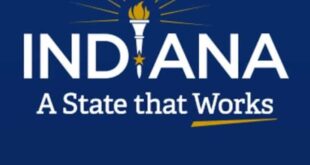Censoring History Education: Threatening Democracy and the Fight Against It
The censorship of history education is becoming increasingly common in countries around the world, and it presents a dire threat to democracy. The censorship is often motivated by political agendas, and in many cases, it is an attempt to present a revised version of history that caters to a particular narrative. Four countries, namely Brazil, India, Philippines, and the United States, stand out as some of the most significant censors of history education. Here is a look at how censorship is playing out in each of these countries:
Brazil
Former President Jair Bolsonaro has been a vocal critic of the way slavery is taught in Brazilian schools. He has also supported the far-right thesis that Africans bear most of the blame for the enslavement and trading of African people. Additionally, the “Escola Sem Partido” or “school without politics” movement has proposed laws that would decrease teaching time for Black and Native Brazilian history and culture. Furthermore, Bolsonaro has repeatedly attacked the National High School Exam (ENEM), leading to the disappearance of at least one question about the 1964 coup from the 2023 exam. Bolsonaro’s interference and intimidation tactics have sparked concerns about the fate of history education in Brazil.
India
Since Narendra Modi assumed the leadership of India in 2014, Hindutva, or radical Hindu nationalism, has become a cornerstone of internal politics. This surge in nationalist sentiment manifests itself in a surge in mob violence and discrimination against non-Hindu people. It has led to laws and policies that aim to control history education, and this has been mostly directed towards history textbooks. Amendments to the National Council for Educational Research and Training (NCERT) history textbooks for the first year of high school (class IX) have been proposed, with many chapters related to caste conflict being scrapped. Additionally, right-wing Hindutva groups have been pressuring textbook publishers to withdraw critical textbooks.
Philippines
Ferdinand “Bongbong” Marcos Jr. was a Presidential candidate during the May 2023 Philippine Presidential election. Campaigners supporting him claimed that the Marcos administration had brought glory and wealth to the Philippines and that no human rights violations had taken place under martial law. Bongbong promised a revision of history textbooks once in office. He appointed Sara Duterte, someone who expressed admiration for the Marcos regime, as Minister of Education. These moves sparked concerns about the potential rewriting of history textbooks in the Philippines.
United States
Florida’s Department of Education rejected a draft Advanced Placement course on African American Studies and labeled it “woke indoctrination.” This move happened because the course included readings from historians like Robin D.G. Kelly and Nell Irvin Painter. The decision fits within Governor Ron DeSantis’s broader political vision and the trend of restricting the teaching of gender and race in U.S history. Similar censorship practices are found in other states in the U.S. Attempts to censor history education in the U.S. emphasize the importance of ethnocentric nationalism in shaping the political ideology of the country.
The larger picture
During the period between 2023 and 2023, censorship of history education took place in at least fourteen countries, with twelve of these countries experiencing a decline in democratic status at some point during that period. The censorship of education is more than a mere threat to the freedom of historical research and teaching; it is a broader warning sign of the erosion of democracy. Censoring commemorative practices and interfering with research, teaching, and commemoration of history all point to an impending abuse of power.
The fight back
Despite the worrying trend, there is hope. National Association of Historians (ANPUH) in Brazil, PEN America in the United States, historians like Habib, and the Haryana opposition leader Bhupinder Singh Hooda in India, and more than 1700 scholars and educators in the Philippines have been leading the fight against censorship of history education. Their efforts to oppose censorship and defend historical truth and academic freedom should motivate us all to stand up and protect history from abuse by politicians.
 Mind Uncharted Explore. Discover. Learn.
Mind Uncharted Explore. Discover. Learn.


